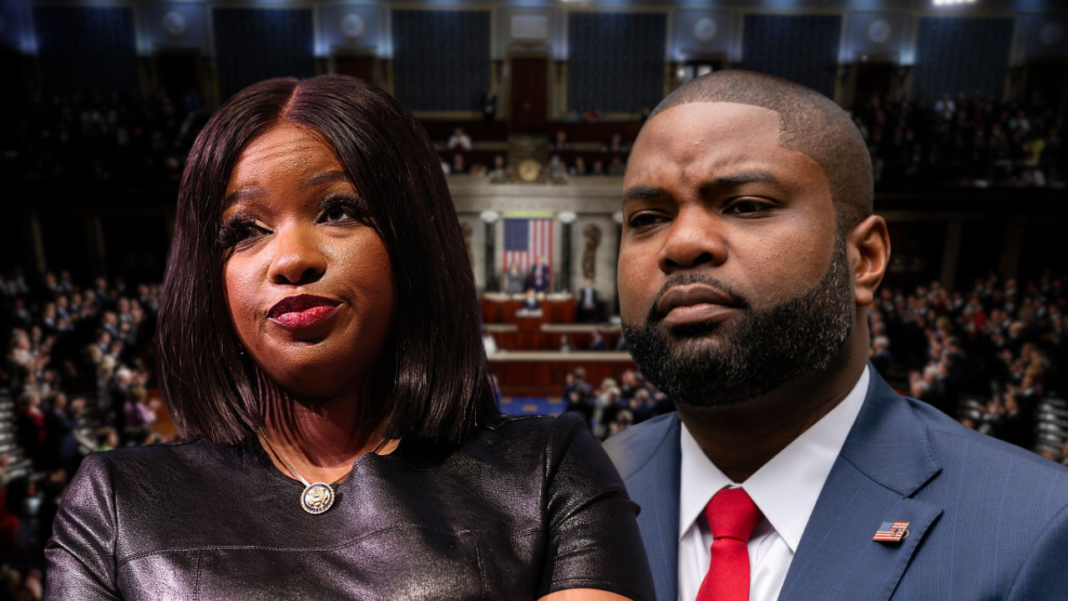The Viral Exchange: A Clash of Perspectives on Public Safety
A recent video featuring U.S. Representatives Jasmine Crockett (D-Texas) and Byron Donalds (R-Florida) has captured the attention of the nation, drawing attention to the significant political divide regarding public safety in Washington, D.C. Their exchange, which unfolded on the floor of the U.S. House of Representatives, provides a window into the ongoing debate over criminal justice reform in the capital.
The Context of the Debate
On September 17, the House passed H.R. 4922, titled the DC Crimes Act of 2025, spearheaded by Congressman Donalds. This legislation has been championed by Republicans as a crucial step in “making Washington, D.C., safe again,” following a series of actions by the Trump administration, including the deployment of military troops to the city. Donalds argues that the bill is necessary because he believes that “District officials have actively facilitated dysfunction and chaos through their progressive soft-on-crime policies.”
The bill aims to revoke reforms previously enacted by the D.C. Council, which raised the age of youth offenders from 24 to under 18 and enabled leniency in sentencing for young offenders. Donalds described D.C.’s existing criminal reform as “insane,” declaring, “It is time for Congress to step up, adhere to our constitutional duty, and firmly address crime in the nation’s capital.”
Congresswoman Crockett’s Counterargument
In stark contrast to Donalds’ assertions, Congresswoman Crockett took the floor to challenge the moral implications of the proposed legislation. She pointedly referred to Donalds’ own past, suggesting a level of hypocrisy in his current position. “Imagine being a young man born to Jamaican and Panamanian parents who messed up not once but twice,” she posed. “Instead of prison, you are given a promise of mercy.”
Crockett painted a compelling picture of redemption that speaks to the heart of the American narrative—second chances leading to success. In her view, Donalds’ story exemplifies the potential for transformation that young offenders in D.C. should also have access to. She emphasized that if Donalds had experienced the same restrictions he now advocates for, he might not have ascended to the ranks of Congress.
The Nuanced Discussion of Second Chances
Crockett’s arguments highlighted a crucial component of the discourse surrounding criminal justice: the idea of second chances. She argued that Donalds, who benefitted from juvenile criminal reform policies, is now seeking to strip those very opportunities from D.C. youth.
“Now, he’s the face of a bill that would not afford young people in Washington, D.C. the same opportunities afforded to him,” Crockett stated, underlining the disparity in how justice is applied across different demographics. Reflecting on her own legal background, she urged the importance of recognizing that not all young people have the same advantages that some, like Donalds, may have experienced.
The Broader Implications of Accountability
Crockett didn’t shy away from making pointed observations about accountability, not just for young offenders but for politicians as well. She drew parallels between Donalds’ proposal and the culpability of political leaders, including ex-President Trump. “It would be complete hypocrisy to have someone convicted of 34 felonies lecture D.C. on what to do with youthful offenders,” she argued, emphasizing the need for leaders to acknowledge their own pasts.
Her remarks reflect a broader societal question: do politicians have the moral authority to dictate policies on reform if they themselves have experienced leniency? Crockett contends that an understanding of one’s own narrative is essential to empathetic policy-making. She used Donalds’ past experiences with the justice system to illustrate how policies affect real lives, especially for marginalized communities.
A Call to Examine Our Values
As the exchange between Crockett and Donalds has circulated widely, it serves as a catalyst for discussions surrounding the criminal justice system in America. Crockett’s perspective underscores a humanistic approach to public safety that prioritizes rehabilitation and understanding over punitive measures. She stresses the importance of lifting others as one climbs the social and political ladder, a stark contrast to the idea of pulling up the rungs behind oneself.
By sharing these insights, the debate continues to evolve, pushing both sides to confront the underlying values that guide their positions on crime, punishment, and redemption. As citizens and lawmakers grapple with these pressing issues, the conversations sparked by viral moments like this one become increasingly relevant in shaping the future of public safety in America.



